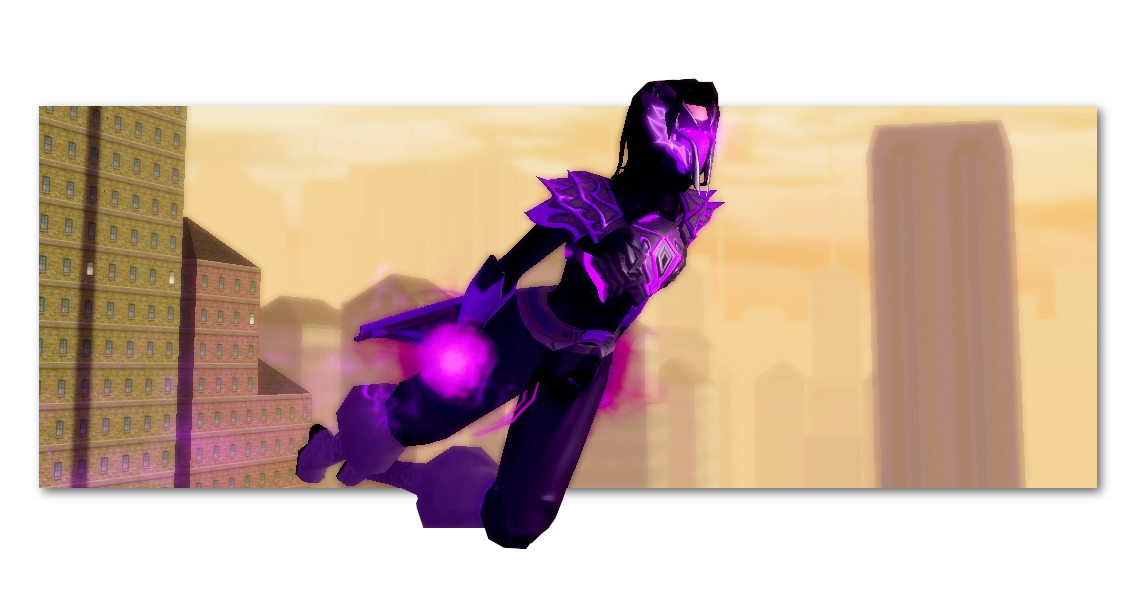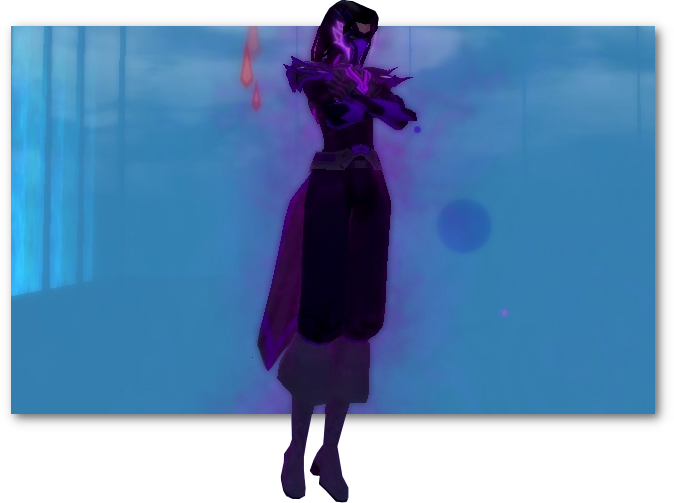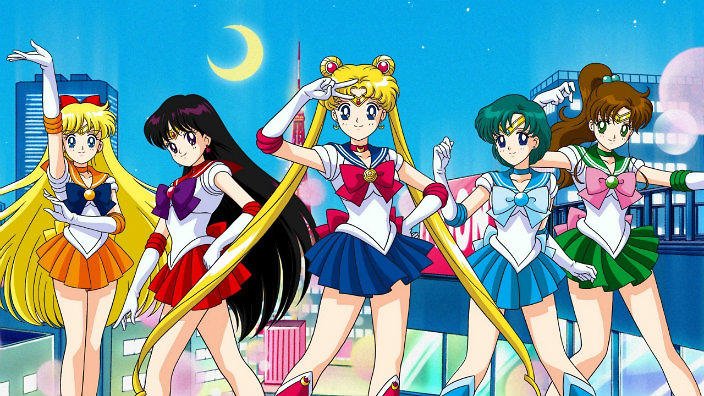A few months ago I mentioned Moonheart, my Resurgence Magical Boy, and how I figured I’d go in on him when I had the chance.
Well?
I have the chance.
Okay, first up, we’re talking about a character I roleplay on the game City of Heroes. This is a fakey-madey-uppy superhero I pretend to be in my free time. If you’re looking at this and missed this introduction, you might be going ‘hang on, what story is this from?’ and ha ha, you fool, I’ve got you to read about a thing I made up.
Gotcha!

Moonheart is a young man from that category of legacy heroes; not directly, as neither parent was Moonheart before him, but as someone who inherited powers from each parent. If you meet him on the street, chances are you might read him as a woman, because of his hips and hair and his not exactly packing the masculine codifiers voice. He’s what might get referred to as a femboy – he’s cis, but his presentation is pretty girly.
(And that’s it, mind you.)
Moonheart is a genuinely impressive powerhouse of a support hero; he’s surrounded with a cloud of black shadows that he uses to throw enemies around, that pour shadows into people’s bodies and cloud their ability to focus, dissolving their armour and making it all told a really hard thing to deal with. If you want to talk about him in classic comic book terms, his powers are very much in your ‘tech witch’ kind of space – he can do a lot of things if he chooses to do them, by dedicating resources (in his case a cloud of nanites) to the task.
These nanites serve as a sort of general all-purpose dose of ‘do stuff’ juice, where he can fire them off as blasts, stitch people back together, make people tougher, fight harder, restore and to heal. There is stuff he can make them do that’s more specific, but he has to concentrate (effectively ‘weaving a new spell’), and the process of making the nanites do new things is often complicated enough that he’d rather find a more familiar way around the problem.
Note that for all that he can do a lot, his main limitations are range, concentration, and surprise. His nanites can’t extend very far from his body – barely fifteen meters or so – and he needs to be both paying attention and armoured up to take a hit. The speed at which he can defend himself is very much comparable to the speed of managing a complex interface, and while he can absolutely baffle you with nanites so you can’t so much as touch him, he has to get his first hit in to do that. Similarly, he needs to think about the things he’s doing – defending himself against one opponent is less draining than defending himself against thirty.
Also, because his powers are best focused in other people, he doesn’t fight as well on his own as he does with friends and allies to support. Again, that’s that concentration thing – if he can just dump armour and protection into an ally with his nanites, or pin enemies in place with tentacles knowing an ally can handle them after that point, it frees him up to do other things.
In squad terms, he’s very much meant to evoke a ‘bruiser’ magical girl, someone whose powers are not particularly subtle or clever and who mostly does ‘dark magic’ like curses or hexes and beats people up, waiting for the episodes where character development is particularly high priority.

Now, a thing I like about Moonheart for other players to think about is the idea that they have some opinion not on him and his fame, but on his moms. See, Moonheart is the kid of a pair of public magical girl superheroines from the late 90s; one, from the Justice Witches, who had power derived from astrological signs, and the other from the Night Sabers, a group of sometimes-villains, eventually-heroes rival magical girls. If you’re imagining a standard, generic kind of Sailor Moon homage and a Sailor Starlights homage, that’s basically what you’re getting at.
The Sailor Starlights were (seeming) dudes that transformed into women as part of their Magical Girl gig, and there’s room there for me to expand ideas about what that means. I haven’t filled it out, but I do know I wanted it to smack of that sort of 90s anime that wound up being Very Important to millenial queers, with ideas that were maybe handled unwittingly.
So, what this means for Moonheart, typically, is that he often encounters people who recognise his armour or powers, from his moms, and they either don’t realise he’s related to them, or they do, and they go on about how great his parents were and how much they liked them and their personal ships and all that stuff while he feels awkward, or fumes, or tries to get his job done.
Mechanics
What about this guy mechanically?
Well, Moonheart is a defender, made under Resurgence rules, with my budget, which is to say, he’s bloody disgusting. He’s a Pain Domination/Dark Blast/Dark Mastery defender, which gives us this laundry list of stuff:
- Soft-capped ranged defense
- Soft-capped energy and negative energy defense
- Capped smashing and lethal resistance
- 50% negative energy resistance
- 75% global recharge, the same as hasten permanently
- Constant World of Pain
- 70% global damage when solo
These are not super important numbers to anyone who’s not following the game mechanics too closely, but the long and short of it is that Moonheart is one of the ‘fragile’ characters who is so tough that melee damage dealers and even some tanks would be impressed.
If you want to look at his build, here, you can download it at this link.
History
The thing that I find the most interesting about Moonheart, now I’ve been playing him for a bit in resurgence, is how this character changed so much. Once, he started out as a empathy defender for a failed PVP project called Bloodlight. The name was Bioodiight, with specific capitalisation.
What happened with that character is a little time-lost, but the name was reused on another Defender, Bloodlight, who was sort of the origin point for this concept, of a magical boy who inherited powers and style from his mom. The gender-bent child character homage is a pretty common one in comics, with Laura Kinney’s Wolverine and Andrea Benton’s Mania, but it tends to only bend in one way: Turning existing boy heroes into hot girls. I hadn’t seen it done much in the other direction.
I want to also attribute this idea to Fox? Specifically? I don’t know if I bit the idea wholesale or if I bit a bit of it (hah), but the idea of this character as a magical boy whose mother was a magical girl. Her take on it was as best I can remember, much more neutral about it – an extremely cute femboy who could be mistaken for a girl who was generally apathetic about it, and very much sweetly trying to do his best.
My version went in that same space; the character was the son of a Magical Girl from the 90s, and she’d handed over her high-tech super-suit thing, but because of how she’d built it, the outfit he got had her aesthetic. At first, my rendition of this character, Bloodlight, was meant to be resentful of the femme presentation and kind of defensive about it. The original idea was that he maintained his secret identity not for its own sake, but because he was deeply humiliated by it, even as he tried to do his best to be a good superhero.
You may recognise this being a sort of progenitor idea for something I did with Rafe in One Stone – a character who presents femme and resents it, but doesn’t dislike it enough to get rid of it.

Then we got Resurgence, and I wanted to have this character back, but with a bit more awareness of myself, and honestly, a bit less defensive posture about boys who like cute things. The result was Moonheart – and while I still wanted that exasperated reference to his history, I wanted it to be because he was living in the shadow of his moms, not because he was bothered by the expression his powers took. Now, Moonheart is definitely in this mental space of ‘dangerous femboy’ – definitely a cis boy with a cute, femme presentation that he nonetheless likes a lot and thinks of as badass.
Me, I really like revisiting concepts like this, but I think it’s important to make sure when I do it, I’m going back and looking at how the character was, and now how I want to make them. Roleplayers are often extremely reluctant to admit to change, because doing so might involve suggesting that they were wrong. Roleplaying spaces are so often filled with people who, while making choices, like to imagine that those choices are being made by the character, not they, who shape the character.
Critically tracking the history of a character like this, even one who hasn’t really had much ‘story’ as you’d consider it, is a really interesting examination of what does and doesn’t matter to me, and what I was experimenting with and testing when I was younger.